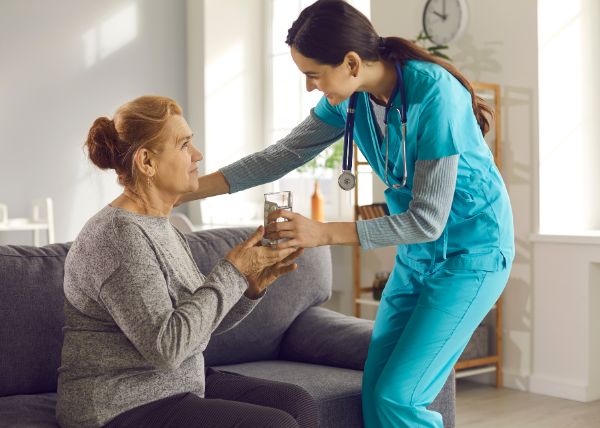They call them “chemical restraints”: drugs that ensure your elderly loved ones are “out of it” and easy to handle in order to make life easier for staff members at for-profit nursing homes.
These institutions could choose to hire more people, pay their staff members better, or both. Instead, they often choose cruel, inhumane, and irresponsible treatment of the very people they’ve been charged with protecting. Sometimes, these pills are even used to punish residents.
The New York Times reports that at least 21% of nursing home residents are on antipsychotic drugs. They also reported that nearly ⅓ of long-term nursing home residents who have been suddenly diagnosed with the condition have no history of schizophrenia.
The vast majority of schizophrenia cases are diagnosed before a patient turns 40 years old.
Risks of Chemical Restraints
The Consumer Voice notes that the improper use of antipsychotic drugs can have the following side effects:
- Loss of independence
- Oversedation
- Confusion
- Increased respiratory infections
- Falls
- Strokes
- Death
One study found residents taking antipsychotics had more than triple the likelihood of having a stroke compared to residents not taking these medications.
Recognizing the Use of Chemical Restraints
If you are responsible for your loved one’s medical care you have the right to determine what drugs have been prescribed, why they were prescribed, and what the side effects of each drug may be. Your loved one has the right to refuse any medication, even if they have a history of mental illness.
Look for:
- Aripiprazole/Abilify
- Clozapine/Clozaril
- Haloperidol/Haldol
- Olanzapine/Zyprexa
- Quetiapine/Seroquel
- Risperidone/Risperdal
- Ziprasidone/Geodon
- Depakote
Keep in mind that Depakote may not show up on any official care plan. It is often sprinkled into the food of residents to make them drowsy and compliant. If you see a change in your loved one’s behavior and can’t explain why, it may be a sign that your loved one is being abused.
Know Your Rights
If you are responsible for a loved one’s care, you can check them out of a nursing home at any time. If they are still responsible for their own care, they can even check themselves out.
If your loved one is suffering as a result of chemical restraints or other abuse, don’t hesitate to reach out to us. We’ll be happy to provide a free case review. Your loved one may be entitled to compensation—compensation that can help to provide them with better, safer care.



